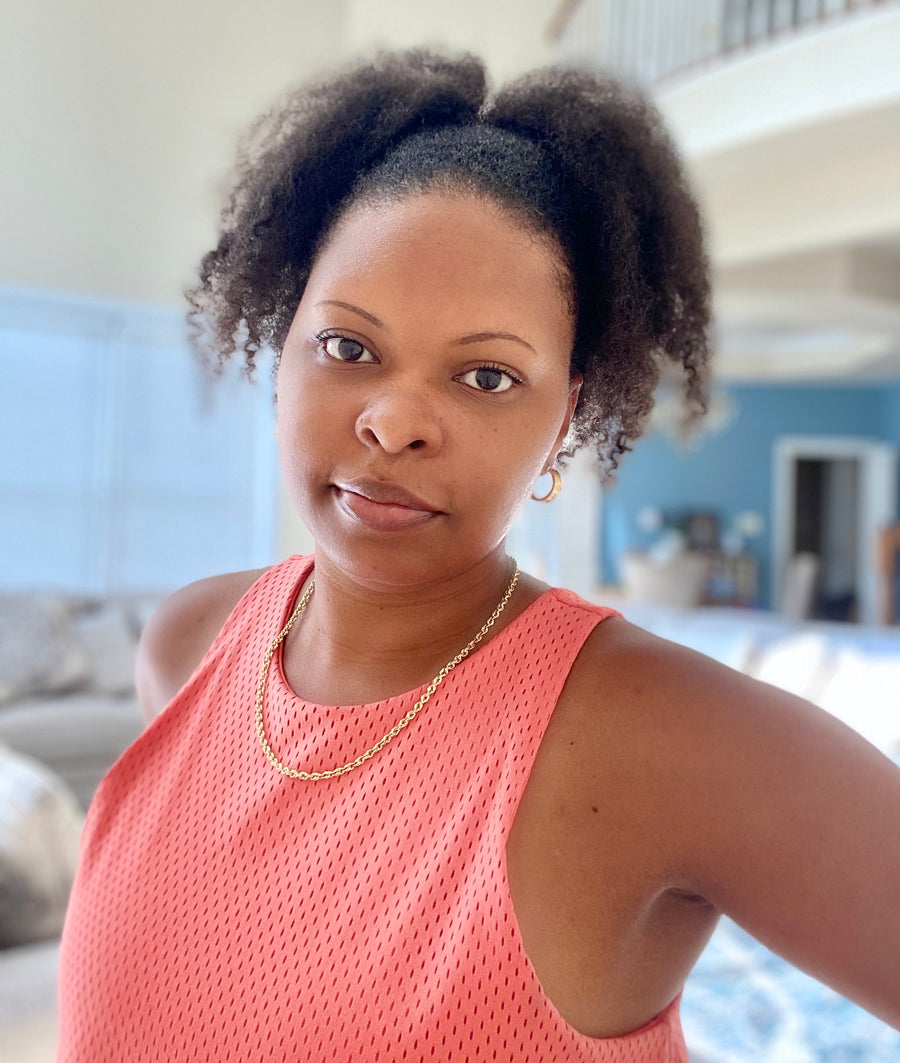Monique Farook on Being Patient

Tell us a little about yourself.
I am a Maryland native and have been married for nine and a half years. Before becoming a mom, I was a full-time take-out restaurant owner and operator for over six years. I have since become a content creator.
You can follow me on Instagram @infertilityandmepodcast and learn more on my Linktr.ee!
You’re an infertility survivor and a former NICU mom. Would you share your journey to motherhood?
My desire to have a child was burning like hot coals underneath my feet through the top of my head. Trying to conceive quickly became my obsession. It was the spring of 2012, and my husband and I had been married for two years. I was referred to a radiologist by my reproductive endocrinologist for a HSG test to determine the health of reproductive organs. During my radiology appointment, it was concluded that I had right tubal blockage. I was shocked and devastated. After one unsuccessful IUI (Intrauterine Insemination) we waited four long years before seeking the expertise of a reproductive endocrinologist for a second time. It was then I was diagnosed with a hormonal disease called hypothyroidism and uterine polyps. Although the right tubal blockage had "cleared" itself, I had two new unforeseeable issues to deal with before we could begin any form of IVF treatment. In August of 2016, I became pregnant with our baby boy after one unsuccessful IVF cycle—ecstatic to say the least. Finally, after almost six years of marriage, our miracle IVF baby was on the way.
In January of 2017, I went into preterm labor at 23 weeks, five days and remained in the hospital on bed-rest for an entire week. At 24 weeks, four days pregnant (six months), our baby boy was born at 5:34 pm weighing 1lb 9oz, and 12in. long. Our son spent 129 arduous days in the NICU, graduating on May 29th, 2017—two weeks after his original due date. :)
How did your fertility journey change your perspective on reproductive health and inspire you to start your podcast, Infertility and Me?
Through the four year wait period to consult with a second reproductive endocrinologist, I suffered alone and in silence. The very few people I called friends were not aware of our struggles, my older sister (who I am very close with) never knew, my parents only. My husband and I conversed about the state of my infertility diagnosis, but neither of us had had this experience before. Attempting to comfort one another was hard and often led to disagreements about what the next step should be. During that four year wait period, I was enlightened to the world of fertility.
I quickly realized that it wasn’t easy to become pregnant for everyone, especially not for us. The human body is a complex system; one wrong move, and the entire network could be harmed. I love to read and research, so I began this quest to learn all that my mind could handle in regards to reproductive health and fertility. I even considered returning to college at one point to pursue a degree in naturopathy.
Two years after our son was born, I began to feel like I wanted to share—share my journey through infertility with silent sufferers who were hurting and felt alone like I did. My goal for the show is to be a face and voice for women of color, to bridge the gap between fertile and infertile people—thereby making conversations about infertility less taboo. Sharing stories, gaining knowledge from experts, and wisdom to help along the way.
What stigma in women’s health do you wish to lift the veil on?
The biggest stigma would be the idea that the female menses is an unattractive or ugly part of a woman’s life. Lack of teaching and understanding about the female and male reproductive systems plays a huge role in why it is viewed negatively. The menstrual cycle is a very sacred time. The body is much more intelligent than us and creates this process to prepare a woman for possible pregnancy. It’s truly remarkable.
What did you do to care for your body while TTC and pregnant?
I went a little overboard with my workout routine lol, but I was doing cardio and light weightlifting. I gradually changed my eating habits. I never did any specific diets. I focused on total well-being and incorporated more leafy greens, less red meat, fruits, and many other whole foods. I supplemented as well, taking prenatals with folate, omega DHA, probiotics, and prebiotic fiber.
You’ve shared that you're planning to try for another baby. What are you most excited about as you grow your family?
I have an older sister, but we did not grow up in the same household. My dad was married to her mom first. I always wished we could have grown up in the same home. The possibility of my son growing up with a sibling in the house makes me emotional.
What advice do you have for other aspiring mamas?
Be patient; conceiving is a delicate process. We live in a world that praises instant gratification, and we don’t realize that the body knows best. A woman’s egg will reject sperm with abnormalities, so don’t view an unsuccessful month as a loss, but rather a chance to try-again.
Anything else you’d like to share?
Take time to learn about your body on an intuitive level and encourage your partner to do the same. Become more aware of what you put on and in your temple; we only get one.
Shop Products From This Article
Backed by science, trusted by mothers
We’re glad you’re here—join thousands of happy customers on the journey to parenthood and beyond.
Shop Now

















